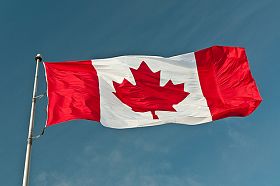
Studying the approaches used in Norway and Iceland to generate maximum returns from cod and other groundfish resources was the primary focus for Keith Hutchings, Minister of Fisheries and Aquaculture, during a recent trip to both countries.
“Norway and Iceland are recognized throughout the world for producing high quality seafood, and like Newfoundland and Labrador, seafood is vital to their economy. It was valuable to review the unique operations in these countries and understand their approach to serving European customers as our industry prepares to pursue new opportunities in international markets,” said Minister Hutchings.
Newfoundland and Labrador’s seafood industry has continuously improved its approach to groundfish and aquaculture production through such initiatives as a new cod pricing agreement that promotes greater quality and economic returns, new traceability software that allows consumers to track their fish back to the harvester, and several sustainability certifications earned by aquaculture operators and harvesters. To build on this, Minister Hutchings gathered information on Iceland and Norway’s approach to providing seafood throughout Europe.
Minister Hutchings noted that Norway focuses on fast and efficient delivery of fish to market in fresh, frozen, and salted forms, with an emphasis on maintaining quality and minimizing handling and processing.
In Iceland, the industry’s emphasis is on full utilization of raw material and the development of value-added products such as fish collagen, which is used in dietary products. Icelandic processors noted during tours that no part of the fish is considered “waste.”
An innovative way Norwegian and Icelandic harvesters have motivated fast and efficient sales of high quality seafood is by making their product available via online auction, an approach previously tested but not adopted in Newfoundland and Labrador. Operators in both countries have also cultivated valuable markets for their specialty salt fish products, demonstrating the economic potential that can be enjoyed from developing unique value added product.
Despite operating plants that produce seafood year round, operators in both countries experience the same issues securing labour for processing plants that are being experienced throughout Atlantic Canada, and they address labour supply challenges by attracting workers into their respective countries.
Minister Hutchings also visited the Norwegian Seafood Council which supports seafood marketing activities in more than 150 countries. The council is a public company owned by the Ministry of Trade, Industry and Fisheries, and is financed by the Norwegian Seafood industry through fees levied on all seafood exports. The Provincial Government has encouraged the development of industry-wide marketing initiatives in the past and will continue to do so given new opportunities to brand provincial seafood in European markets. Recently Minister Hutchings invited members of the Seafood Producers Association of Newfoundland and Labrador to propose such collaborative marketing initiatives.
Norwegian aquaculture operators shared information about their approach to promoting fish health and expressed interest in reviewing investment opportunities within the province given the Provincial Government’s support to industry and commitment to best practices.
While in Iceland, Minister Hutching also visited fisheries science facilities, which led to discussions about different approaches to research, and the possibility of working jointly on science projects. Officials from Iceland and Norway also share the Provincial Government’s commitment to promoting fisheries innovation through initiatives like the Fisheries Technology and New Opportunities Program, and expressed interest in collaborating on research and development as well.
“Globally, there is significant opportunity right now in aquaculture, fisheries science, and research and development, and Newfoundland and Labrador is in a tremendous position to benefit. Our Marine Institute is a global centre of excellence for research and the people I met expressed great interest in availing of its resources. Foreign interest in our robust and well-regulated aquaculture industry is naturally very high, as 50 per cent of all seafood is now produced through farming, creating huge opportunities for provincial operations,” said Minister Hutchings.
The information gained in Norway and Iceland will be combined with consultation feedback from the provincial seafood industry to develop initiatives related to CETA and the C$400 million Federal-Provincial fishery enhancement fund.





